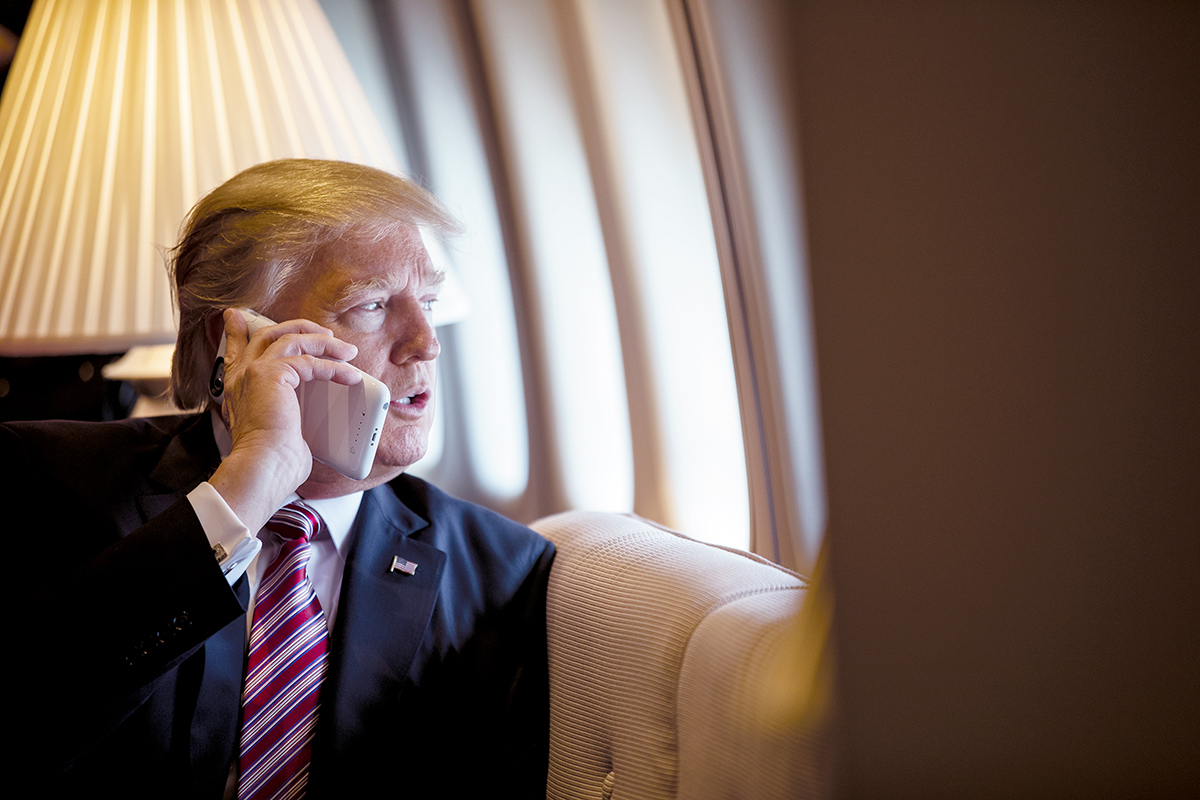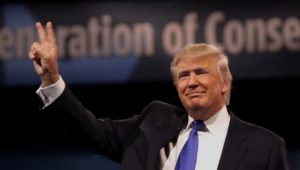
Da Nang (Vietnam)– US President Donald Trump on Friday pitched an “America First” trade policy at the Asia-Pacific Economic Cooperation Summit (APEC) here, warning that he will not allow “the US to be taken advantage of any more.”
Speaking at a gathering of business leaders, Trump demanded trade “on a fair and equal basis” and returned to his campaign rhetoric, promising to place America first in global deals and agreements.

“We are not going to let the US be taken advantage of any more,” Trump said, speaking shortly after arriving in Vietnam, his fourth stop on a five-country tour through Asia.
“I am always going to put America first, the same way that I expect all of you in this room to put your countries first,” the Washington Post reported.
APEC brings together 21 economies from the Pacific region — the equivalent of about 60 per cent of the world’s GDP.
The US President’s more fiery and protectionist tone offered a stark departure from just a day earlier, when in Beijing, Trump seemed reluctant to press his case as sharply with Chinese President Xi Jinping, the Post said.
There, Trump lavished praise on Xi and blamed his predecessors, not China, for the trade imbalance.
He also laid out Washington’s new approach to trade, telling the audience at the summit on Friday that he would no longer pursue multinational trade agreements “that tie our hands, surrender our sovereignty and make meaningful enforcement practically impossible”.
“I will make bilateral trade agreements with any Indo-Pacific nation that wants to be our partner and that will abide by the principles of fair and reciprocal trade,” Trump said without directly mentioning the Trans-Pacific Partnership (TPP), a major trade deal with 12 APEC member countries.
After taking office, Trump pulled the US out of the TPP, arguing that it would hurt US economic interests.
In a tacit knock on Chinese leaders, the US leader said Washington would “no longer tolerate the audacious theft of intellectual property”, CNN reported.
“We will confront the destructive practices of forcing businesses to surrender their technology to the state, and forcing them into joint ventures in exchange for market access,” he said.
Businesses in the US have long complained about China failing to honour intellectual property rights.
Immediately after Trump left the stage, Xi took his place, delivering a starkly contrasting speech that argued for pursuing the kinds of global initiatives that the US President had shunned.
The Chinese leader championed the Paris climate accord, called globalization an “irreversible historical trend” and said China would continued to pursue a free trade area in the Asia-Pacific.
“Against the backdrop of evolving global developments, economic globalization also faces new adjustments both in form and substance,” Xi said.
“In pursuing economic globalization, we should make it more open, more inclusive, more balanced, more equitable and more beneficial to all.”
Trump also continued the tough talk on North Korea. He said the region “must not be held hostage to a dictator’s twisted fantasies of violent conquest and nuclear blackmail”.
APEC comprises Australia, Brunei, Canada, Chile, China, South Korea, the US, the Philippines, Hong Kong, Indonesia, Japan, Malaysia, Mexico, New Zealand, Papua New Guinea, Peru, Russia, Singapore, Taipei, Thailand and Vietnam.
As Trump arrived in Danang, the White House announced that he would not hold formal talks with Russian President Vladimir V. Putin on the sidelines of the APEC summit meeting.
Citing “scheduling conflicts on both sides”, White House Press Secretary Sarah Sanders told reporters that no formal meeting will take place.
After Vietnam, Trump will travel to the Philippines for an Association of Southeast Asian Nations (Asean) Summit. (IANS)




